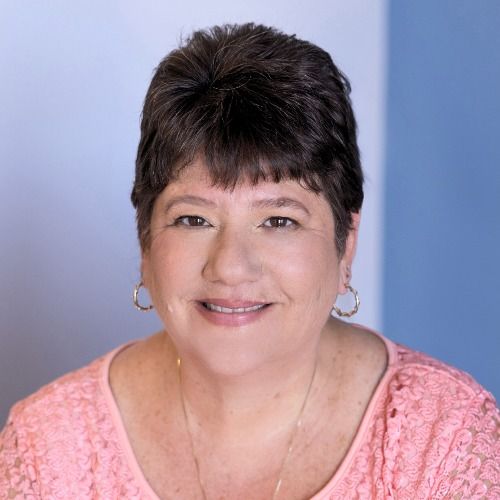S1 E2: ESG and What it Means to Companies and Communicators with Michael Diegelmann
Everyone is talking about sustainability – and that’s no wonder. Addressing ESG (Environmental, Social, and Governance) metrics and taking them seriously is worthwhile for every single company. Companies that deliver a good sustainability performance are more successful in the long run.
About the Guest
Michael Diegelmann, founder of cometis AG, has gained valuable experience from more than 150 communication projects (IPOs, ESG, Investor Relations, M&A, crisis) and long-standing connections to the financial community in Europe, since 1997 in the field of capital market communication. cometis AG is one of the leading ESG & Investor Relations agencies in Germany. With our many years of know-how on the capital market and our sense of market trends, we constantly set new standards in ESG & Investor Relations.
About the Host
Abbie Fink is vice president/general manager of HMA Public Relations in Phoenix, Arizona and a founding member of PRGN. Her marketing communications background includes skills in media relations, digital communications, social media strategies, special event management, crisis communications, community relations, issues management, and marketing promotions for both the private and public sectors, including such industries as healthcare, financial services, professional services, government affairs and tribal affairs, as well as not-for-profit organizations.
PRGN Presents is brought to you by Public Relations Global Network, the world’s local public relations agency. Our co-host and executive producer is Adrian McIntyre with Speed of Story, a B2B communications firm in Phoenix.
Follow the Podcast
If you enjoyed this episode, please follow PRGN Presents in Apple Podcasts, Spotify, Google Podcasts, or any other podcast app. We publish new episodes every other Thursday. To have them delivered automatically and free of charge, just choose your preferred podcast player from this list, open the app, and click the button to “Follow” or “Subscribe” to the show: https://prgnpodcast.com/listen
Need to hire a PR firm?
Leading a business effectively in today's fast-paced world requires expert guidance and a strong communications strategy. No matter where you do business, PRGN has a member agency in your region with the deep industry expertise, international experience, and local market knowledge you need to connect with your target audience and achieve your goals. Find a PR firm near you »
Transcript
Welcome to the Public Relations Global Network's 30th anniversary podcast. I'm Adrian McIntyre ...
Abbie Fink:And I'm Abbie Fink, vice president/general manager of HMA Public Relations in Phoenix, Arizona and a founding member of PRGN. With public relations leaders embedded into the fabric of the communities we service, clients hire our agencies for the local knowledge, expertise, and connections in market spanning six continents across the world.
Adrian McIntyre:Our guests on this "limited edition" podcast series are all members of the Public Relations Global Network. They'll discuss such topics as workplace culture, creative compensation and succession planning, the importance of sustainability and Environmental, Social, and Governance programs, crisis communications, and outside-of-the-box thinking for growing your business.
Abbie Fink:For more information about PRGN and our members, please visit prgn.com. And now, let's meet our guest for this episode.
Michael Diegelmann:Hi, I'm Michael Diegelmann. I'm from Germany, and I'm founder and CEO of cometis AG, a purely specialized consulting firm to investor relations and ESG advisory. We are in the game for over 20 years now, and I still love it.
Abbie Fink:Michael, thanks for joining us today. I wanted to chat with you a little bit about ESG. You have been talking about this for quite some time, and so if you could just give an overview, and then let's get into a little bit about why it's so important and why we need to be paying more attention in terms of how we're advising our clients and businesses around this topic.
Michael Diegelmann:Of course. So let me start with the definition here, because often people talk about sustainability and ESG and don't really know what it means. Sustainability really means all actions that corporations take to help this planet survive for the next generations. And ESG means environmental, social, and governance, and it's measuring, in several hundred indicators, the progress on what corporations do to become more sustainable. So this is to start with why and what it's all about.
Abbie Fink:Is this a relatively new process? Have we given it a different name? Have we... Community relations? Doing good in the community? Or is it just a different name on the same subject? Or is it really looking at it a different way?
Michael Diegelmann:No, look, it's a really serious topic. And, if you go to the bottom of it, we have two major issues on this planet. One is global warming, and this is around since the 80s in the Kyoto Protocol, if you remember. And the second is the growing inequality on our planet. And this is causing wars, and people to move, and it's a real issue for any kind of society. So it's not new, it's old, but what is new is that corporations seem to wake up and understand they do have a responsibility as a corporate citizen to take actions. Because we are close to 12 o'clock, it's really serious.
Abbie Fink:And what are you advising on? When you come in and a client is going to take this seriously now and is ready to make a move in this way, what are you doing with them? What's the advising look like? What's the conversation?
Michael Diegelmann:As we consult lots of companies who are on the stock market, there are different approaches on what you can do for corporations. There's one side, which we call the true believers. So they're really into the topic, and they really walk the talk, and they want to make fundamental changes. And then you have the others who realize that the entire valuation, corporate valuation, the stock market, is now more and more depending on their aspects, what they do on ESG issues, right? So often we get requests as, "Oh, I want to influence our ESG rating." I said, "No problem. We can do that." It's just an algorithm, and it's not very sophisticated. So you just have to understand the 3- 400 characters and then come up by actions. What do we do on social injustice? What do we do in equality or gender pay gap? What do we do in payment policies for the board? All that kind of stuff. But first of all, we have to come down and measure it. So we basically come up and build a framework based on what the world has already created for their individual clients. And then we go step-by-step and lead them through the process on how becoming a better corporate citizen and influence their corporate valuation on the stock market.
Abbie Fink:Is this just something that publicly held or publicly traded companies do, or can private companies ... should private companies also do it?
Michael Diegelmann:The biggest pressure is coming from the capital markets, obviously. If you see what's happened over the past few years, the assets under management, which are actively managed or passively managed, are more and more based on E, S, or G criteria. And I think, I've recently read a survey that by the year 2025, 75% of all assets being managed, equity or debt, on the planet will relate to certain ESG criteria. So the pressure's coming from the capital markets, but then you also have a lot of movements on the legal side. So if you see, for example, Germany has a supply chain law introduced two years ago, which is in effect now. The EU has introduced the EU taxonomy and is going to introduce the EU supply chain law. That means, even if you are a privately-held company, but for example, your clients are stock listed, you are part of that value chain, of that supply chain. So you will have to deliver data. And corporations now think, "Oh, we are doing great," and can't prove it, that is, communication-wise, a huge issue. Let me give you one example: forced labor or child labor. If you would know that the shirt you're wearing, the cotton which was picked, was picked by some slaves somewhere on the planet, you'd probably not buy that brand. For a corporation, and I don't want to pick out any specific name, but any brand, for them to guarantee that the cotton which is picked on the field somewhere in China, in Africa, in Asia, no child has been forced to do that, it's quite an issue. How can they guarantee it's not happening? This is why they have to introduce processes to make sure that everybody along the supply chain is complying to those rules.
Adrian McIntyre:The Kimberley Process was very successful in transforming the diamond industry in part because consumers began to demand it, not only pressure from investors and so on. And there was a confluence of media coverage and movies, Blood Diamond, it created a narrative and people began to ask for the certification, ask for that stamp of approval. How much does educating the end consumer play an important role in incentivizing the companies to move? Doing the right thing ought to be good enough. But we know, at the end of the day, it takes more demand. How does that play out?
Michael Diegelmann:It's a huge role. You see more and more boycotts against certain brands who don't comply to those rules. And the diamond industry is a good example that they have started to say and do, let's say, have no child climbing down the stairs into some holes and trying to look for diamonds. Here's the big thing about that issue, because it's mainly happening in Africa. All our iPhones, all our mobile phones, all the technology which is inside, also relies on certain commodities which come out of Africa. And in this industry, they don't have a lobby. A diamond is being worn around your neck, or your ears, or on your finger. So nobody wants to have a blood diamond. Your iPhone doesn't have a lobby. So the kids going down and digging that commodity out of the earth. They don't have a lobby yet because they have no one to raise their voice. It is coming. The auto industry, for example, it's a huge issue for them and they're doing good. I know that because we consult a couple of those giga-companies. They can go eight steps down the supply chain, but then they lose track. Because, for example, the management in the mining may change and the new management may not follow the rules. So for that car manufacturer to guarantee, "Okay, no child labor in my car," that's an issue. However, the good news is it is coming. And to your point, Abbie, it is very urgent that all companies start to understand that they need to act. Because, sooner or later, with all the regulations coming, they will have issues in refinancing themselves on the stock market, in equity, and on the debt market in terms of credits.
Abbie Fink:Well, and if, as Adrian says, as consumers, if we are holding these companies accountable to these efforts, but for those of us that want to work for these organizations, we are going to have ... If they want to guarantee, as you say, we are going to have to abide. I may not be, as a small business, privately held company, obligated to do this, because I don't have a stock valuation to concern myself with. But if I want to work for a public company who is ensuring this down the line, I will have to abide by those guidelines and ensure that my processes align and meet the criteria that they are trying to maintain for their own business.
Michael Diegelmann:Sure. To give you an example, we are about 35 people working on those issues for those large corporations. And I think it was last year that we already got an RFP, a request for proposal, and we got a checklist. So what do we do in terms of training for our employees? How do we guarantee work safety? And how do we have governance issues written down? So it is coming all the way down the value chain, even to small corporations. What I see, that maybe in the US it's a bit behind, and in Europe, but it is a big topic here, too, especially the social aspects. Environmental may not be as big, but governance, especially for stock-listed companies in the US, is also pretty big. And, from what I've been reading, is that the security and exchange commission is preparing laws for corporations to report on their progress on environmental, social, and governance, ESG, issues.
Abbie Fink:How did you get into that kind of consulting work?
Michael Diegelmann:Well we've been writing ... we've been working for stock-traded companies for 20 years. And I think it was five years ago there was a law in Germany that you had to start writing about non-financial issues as part of your annual report. So we've been writing those. And it was very, very broad what you said, the words was didn't mean much. And I just read about it, I read into it and I saw how the money flows are changing. And in the last years, just the bond market has had a 540% increase on how the bonds are being given out based on ESG issues. So corporations just have to have that information in order even to get an appointment. So the investment process is really changing. In the past. You just had to have good numbers, and great CEO, and somebody who could really talk good and sell the story. And now there's a step before, there's a gatekeeper, and this is called ESG ratings. If you don't have one, you don't even get an appointment anymore. If you have a bad rating, you may not even get into the fund. And that's also regulated by the bylaws from those equity or debt funds. Because they refinance themselves, as well, through the market. And again, coming back to the thing of child labor, if you invest your money, you probably don't want to give anybody money who's encouraging the supply chain to have child labor in order to maximize profits. You wouldn't give those people your money, very simple. So that's why I saw that and said, "Look, we got to dive into it." It's huge. Plus, I'm just reading the news and following up, you see that climate change is around. And we see now the tragic with the Ukraine-Russia war. And we've seen it in 2016, we had millions of people, refugees from Syria coming to Europe, now it's from the east. So we have a problem on this planet and this is a good step forward. And yes, it may not be everything very logical. It's a step-by-step process to make progress and to give all this a purpose for the future.
Abbie Fink:Well, I think the opportunity for businesses, large or small, to take action, to be upstanders versus bystanders in these conversations, and setting the stage for it to be sustainable. But if what I'm saying today, and what I'm doing today, the impact that's going to have on the future, and that I'm willing to put a stake in the ground and make these changes, yes, for the benefit of my business, but equally as important for the benefit of our communities, our country, the world. It seems to be a valuable investment in your own business to pay attention to these issues, whether or not it's mandatory and obligatory, to still pay attention to what's going on.
Michael Diegelmann:Absolutely. And if I may just add to that, you don't do that stuff to increase your valuation. That's a follow-up thing. But if you really mean what you do, that will be appreciated. And this is the big thing, if you have the ESG criteria it's being measured if you lie or don't lie. So I can only encourage any company to start. Get going on those measurements and actions to make a difference for the future of our children.
Adrian McIntyre:Thanks for listening to this episode of the Public Relations Global Network's 30th anniversary "limited edition" podcast series.
Abbie Fink:You can find all the episodes now in your favorite podcast app. Episodes are also available on our website – along with more information about PRGN and our members – at prgn.com.





